Apply now to join our next cohort of Community Science Fellows and Community Leads!

Abbotsford’s Municipal Wells #8, #9 & #15 are located adjacent to the agricultural field in the background. Nitrate from the field negatively affects groundwater quality in the well. Photo Credit: Josh Soyk-Abbotsford City Administrator.
Our project seeks to reduce elevated groundwater Nitrate levels in three municipal wells constructed in a shallow sandstone aquifer by changing the land-use near the wells from traditional row crop agriculture to land-use more beneficial to groundwater quality. The City of Abbotsford, who owns the municipal wells will work with the Abbotsford School District who owns the land to implement land-use changes that will provide new educational opportunities for students, improve groundwater quality, and to create a plan to sustainably replace revenue lost by not farming the land. The city will monitor Nitrate levels in the municipal wells to quantify how the change in land use near the wells improves groundwater quality.
The City of Abbotsford is a small community located in Central Wisconsin. Located in both Clark and Marathon counties, Abbotsford has a population of 2,500 people. The City of Abbotsford has a very diverse population with almost 40% being of the Hispanic culture. The municipal government will be working on this project to lower the nitrate levels in three of the city’s wells. Groundwater has been an interesting subject for the City of Abbotsford as the city currently has 26 wells and 3 water treatment plants. The city is currently in the process of adding 3 new wells and rehabbing several other wells to gain capacity. The main goal for the City of Abbotsford is to maintain our current capacity of wells along with adding more wells for future growth. Working with Thriving Earth Exchange the City of Abbotsford is confident that we can lower the nitrate levels in our current wells and avoid having to take those wells off-line.
The City of Abbotsford would like to learn how the conversion of 17 acres of traditional row crop agriculture to non-agricultural land use can improve groundwater quality pumped from three of the city’s municipal wells historically high in nitrate. The city has engaged the Abbotsford School District, which both owns the 17 acres and is interested in exploring new educational opportunities created by the land-use conversion. The school district has formed a committee of staff and teachers who are interested in exploring different land use options and educational opportunities along with developing new revenue streams from the land which can replace the revenue generated for the school by farming the land.
The project has 5 priorities, ranked in order:
The 17 acre farmland will initially be taken out of production and planted in native cover. The three municipal wells will be sampled for nitrate monthly to monitor how concentrations change. The city and school hope to engage students in the monitoring process to create a better understanding of local groundwater quality. Outcomes of the project will be the transition of farmland to an alternative land use, the monitoring of nitrate in groundwater wells as land cover types are altered. Community related outcomes will be the learning opportunities created for school students to observe and participate in the transition of land management and monitoring of groundwater quality. The impact of this project will be learning how groundwater nitrate concentrations change in a shallow sandstone aquifer due to the retirement of farmland and subsequent land cover management decisions.
Project Projection
It is foreseen that the current project will lead to a secondary phase project to address long term goals. The first project, as described in this work, limits its scope to the transition of legacy agricultural land to an alternative land cover type and observation of associated nitrate levels in the drinking water wells. The second project, which we subsequently call the Long Term project, will aim to address two priorities that require an extended timeline.
The goals of the Long Term project will be to apply land use management that will 1) serve as educational and community asset, and 2) provide revenue generation to make up for revenue lost from agriculture land retirement. The Long Term project was separated from the current project because of the longer timeline necessary for selection, funding acquisition, and implementation of ideal land management options. Land cover options initially identified for the Long Term project include: an outdoor learning space, nature trails, high tunnel greenhouse or school garden, solar farm and more. It is not yet determined if Thriving Earth Exchange partnership will be sought for the Long Term project. Planning for the Long Term project will include the same community members and project leaders, and may coincide with the implementation of the first project.
The project is intended to span from its start in April 2022 to September 2023, lasting for a total duration of 17 months. A detailed timeline of notable events is provided below.
Project Timeline:
Continual Work
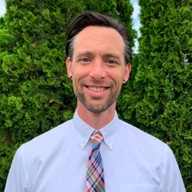
Andrew Aslesen-Source Water Specialist, Wisconsin Rural Water Association
Andrew has been a Source Water Specialist with the Wisconsin Rural Water Association since March 2010. He works with community water systems to solve groundwater quality and quantity issues, primarily through assisting the water systems with developing and implementing wellhead protection plans. Previously Andrew worked as a project assistant with the Wisconsin Geological and Natural History Survey from 2008 to 2010. Andrew earned a Bachelor’s degree in Geography with a Geology emphasis from the University of Wisconsin-Whitewater in 2008 and a Masters degree in Water Resources Management with a Hydrogeolgoy emphasis from UW-Madison’s Nelson Institute of Environmental Studies in 2010.
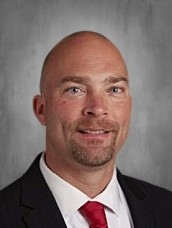
Ryan Bargender-District Administrator, Abbotsford School District
Ryan serves as the District Administrator for Abbotsford School District. Prior to his current role, he served the district as middle/high school principal for seven years. Ryan received his bachelor’s degree from St. Cloud State University in Technology Education (2001) and a master’s degree from Marian University in Educational Leadership in (2014). He completed his superintendent licensure program through Marian University (2019). Ryan previously taught Technology and Engineering Education (TEE) in the Kimberly and Athens school districts.
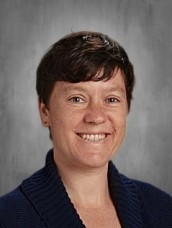
Amber Kraus-EL Learning Services Coordinator, School District of Abbotsford
Amber is the EL Learning Services Coordinator at Abbotsford. She helps coordinate the English Learner and Dual Language programs. Previously she has taught Spanish at the high school level as well as serving as a resource teacher for beginning English speakers.
Amber graduated in 2006 from UW-Eau Claire with a bachelor’s degree in teaching Spanish and English to speakers of other languages. After that, she attended graduate school at Concordia College in Moorehead, Minnesota, graduating with a master’s degree in teaching world languages in 2012.

Georgia Kraus-District Accountability Coordinator, Abbotsford School District
Georgia grew up in northern Wisconsin and went to college at Saint Olaf in Northfield, Minnesota and earned a Major in Sports Science and a Minor in Sports Medicine. At the University of Wisconsin River Falls, she completed a biology major, teaching certification, and a master’s in teaching. Georgia then earned a Doctorate in Organizational Leadership. Prior to her service at Abbotsford, she was fortunate to teach Science. Her administrative career has included serving as an Assistant Principal & Athletic Director, 4K-12th-grade Principal, Elementary Principal & District Administrator, and now District Accountability Coordinator for Abbotsford School District.
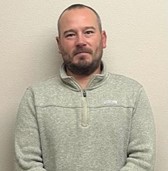
Josh Soyk-City Administrator, City of Abbotsford
Josh has worked for the City of Abbotsford since 2009. He originally worked on a pilot study to treat effluent wastewater into potable drinking water. The pilot study was successful, however the City of Abbotsford decided to go a different route to get more water supply. In 2010 the City of Abbotsford constructed 12 new wells along with a new water treatment plant. Josh was the main operator for the new treatment plant and 12 wells. In 2019 he was promoted to Water/Wastewater Manager for the City of Abbotsford. Along with his duties as Water/Wastewater Manager, Soyk accepted the position of City Administrator in January 2022.

Jillian Tyler-Agriculture Teacher, Abbotsford High School
Jillian grew up in central Wisconsin and attended the University of Wisconsin River Falls where she earned her Bachelor’s degree in Agricultural Education (2021). Jillian currently serves as the Abbotsford Agricultural Education Teacher and FFA Advisor. Having grown up on her family’s dairy farm, Jillian was always surrounded by various facets of agriculture which led her to her current role.
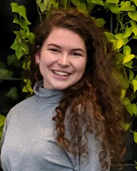
Isabelle Horvath-PhD Candidate, Civil, Construction & Environmental Engineering, Marquette University
Isabelle is the Thriving Earth Exchange Fellow on the project. Isabelle is PhD candidate in environmental and water resources engineering at Marquette University, where she studies urban water quality issues, focusing on sources of unreliable green stormwater infrastructure treatment performance. Isabelle is a native of Western New York, where earned her B.S. in Environmental Resource Engineering from SUNY College of Environmental Science and Forestry (SUNY ESF) in 2018. Isabelle moved to Milwaukee, WI in 2019 where she earned her M.S. in Water Resources Engineering from Marquette University (2020). Isabelle remained at Marquette for her PhD, which she is projected to complete in Spring 2023. Outside work, Isabelle is an avid reader, hiker, and baker.
The project team has a deep knowledge base in topics necessary to conduct the project, including: education, rural water quality, and agriculture. To ensure informed decision making and the success of the project, technical experts will be consulted on an as-needed basis. Technical expertise will be consulted when additional knowledge about a land-use option is needed for feasibility consultation, detailed grant writing, or to oversee the implementation process once a land-use is selected.
The role of the technical consultants is to provide recommendations and guidance in the area of their expertise specific to the project. Multiple technical experts may be consulted for different land use alternatives over the lifespan of the project from short term to long term land management changes. There is no long term commitment expected of technical consultants.
Technical consultants will be identified by the project team, either through community connections, or identification through research. Consultants will meet with one team member or a subgroup of team members over any communication medium preferred (phone, email, video call, or in person visits). Team members contacting and working with consultants will remain consistent to simplify communication. The team member(s) conducting the consultation with the technical expert will be selected based on relevance to the team members’ expertise, connections, or by volunteering.
All technical consultants will be asked two questions about their desired level of recognition and involvement with the AGU Thriving Earth Exchange program. First, they will be asked whether they would like to be recognized as a technical expert by being posted on the AGU Thriving Earth Exchange project webpage for the Abbotsford Nitrate project. Second, they will be asked if they are willing to be added to a database of technical experts organized by the AGU Thriving Earth Exchange, so that a potential future community requiring a consultation in their area of expertise may reach out to them.
All technical experts consulted in the project will have the number of hours they consulted documented by the project team. Technical consultants will also be acknowledged in any media form that shares the project results including, but not limited to: a project summary report, presentations, or educational signage.
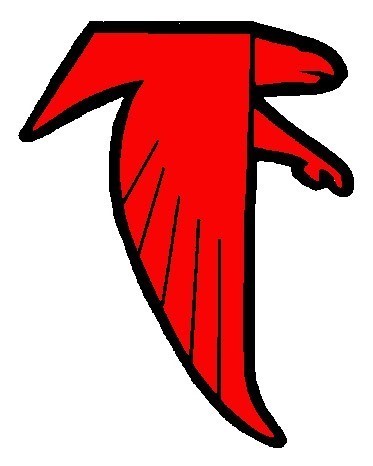
The School District of Abbotsford is a place with many great things happening. Abbotsford Elementary School features a K-5 dual language program. The elementary school was also recently recognized by the Wisconsin RTI Center and the DPI for its Multi-Level Systems and Supports, receiving a silver rating in math and bronze rating in English. Abbotsford Middle/Senior High school has received the Title I School of Recognition award for 15 consecutive years.
The City of Abbotsford is a small community doing business in a big way. Located at the junction of Highways 29 and 13, Abbotsford is home to over 160 businesses and industries which provide a wide variety of services and employment opportunities. Industry is served by two major highways and railway freight services. The community is in the heart of dairyland and is proud of its farm community heritage.
Wisconsin Rural Water Association (WRWA) is a non-profit organization whose mission is assisting, educating and representing their members in the water and wastewater industries. WRWA is the leading water and wastewater industry trade association in Wisconsin with over 580 water and wastewater system members and more than 175 business members.
(c) 2024 Thriving Earth Exchange